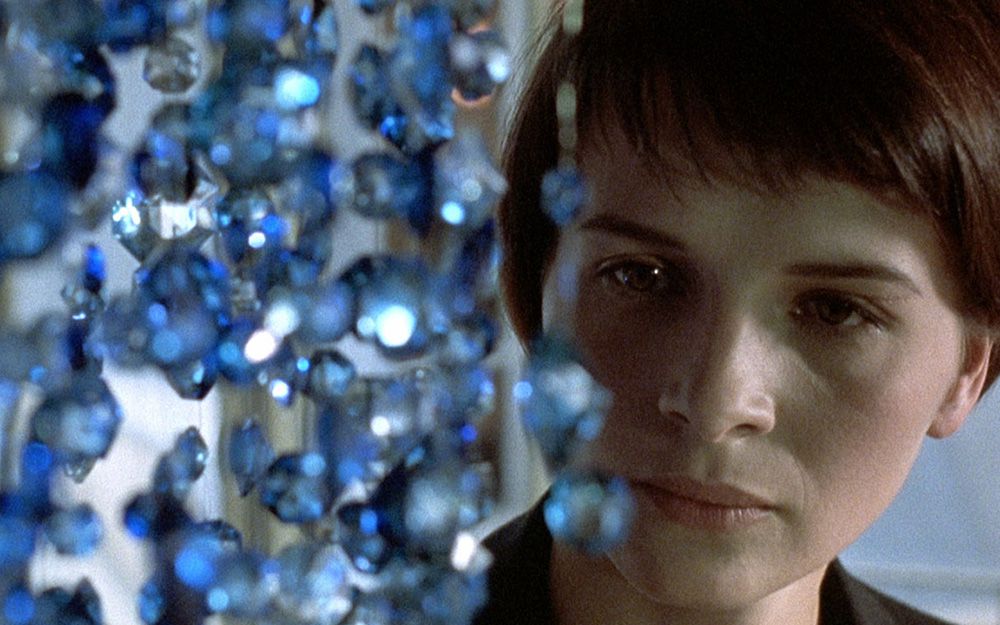Three Colors: Blue by Krzysztof Kieślowski (Review)

Of the “Three Colours” trilogy, I find Blue to be the most satisfying. White failed to impress me as a black comedy (though I’ve come to appreciate it over time), and even though Red had a greater visual flair, Blue just leaves me more satisfied on an emotional level. Much of this is due to the outstanding performance of Juliette Binoche as a woman who must deal with the loss of her husband and daughter. The result is a powerful study of how grief can turn a loving person into an emotionless recluse.
Initially, she shies away from human contact and seeks to cut off all ties to her former life and the pain that it brings. Although she seeks strength, it’s really self-destructive. Gradually, events lead people into her life and she find herself once again interacting with people and getting caught up in the lives of others.
Binoche is simply outstanding in this movie, and the use of light, color, and music accentuate her moments of grief and loss. To be honest, this film may just be the best film I’ve ever seen that deals with the subjects of grief and loss, and how we try to deal with and overcome them.
